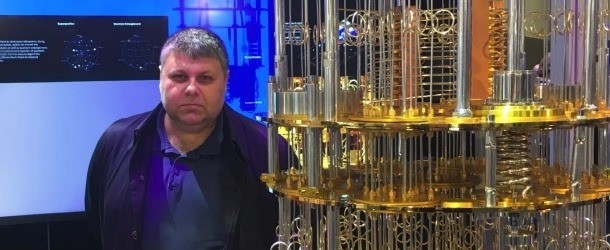Researchers Develop Hybrid Algorithms to Solve Real Problems on Modern Quantum Computers

(EurekaAlert) Researchers at the U.S. Department of Energy’s (DOE) Argonne National Laboratory and Los Alamos National Laboratory, along with researchers at Clemson University and Fujitsu Laboratories of America, have developed hybrid algorithms to run on quantum machines and have demonstrated them for practical applications using IBM quantum computers.
“This approach will enable researchers to use near-term quantum computers to solve applications that support the DOE mission. For example, it can be applied to find community structures in metabolic networks or a microbiome.” — Yuri Alexeev, principal project specialist, Computational Science division.
The hybrid algorithms that the team developed employ the best features and capabilities of both classical and quantum computers to address limitations. For example, classical computers have large memories capable of storing huge datasets — a challenge for quantum devices that have only a small number of qubits. On the other hand, quantum algorithms perform better for certain problems than classical algorithms.
The team seized on graph partitioning and clustering as examples of practical and important optimization problems that can already be solved using quantum computers: a small graph problem can be solved directly on a QPU, while larger graph problems require hybrid quantum-classical approaches. Yuri Alexeev, principal project specialist in the Computational Science division, “this approach will enable researchers to use near-term quantum computers to solve applications that support the DOE mission. For example, it can be applied to find community structures in metabolic networks or a microbiome.”



















